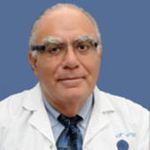

















What does Tel Aviv Sourasky Medical Center (Ichilov Medical Center) offer patients?
How many specialists are there and what accreditation's have been awarded to Tel Aviv Sourasky Medical Center (Ichilov Medical Center)?
Knee ligament surgery (PCL), or posterior cruciate ligament surgery (PCL Surgery), is a surgical procedure to repair or reconstruct a ligament in the knee. It may involve reattaching the ligament fibers that are torn. In some cases, additional tendon or other tissue is required in order to reconstruct ligaments that are severely damaged. The surgery may be followed by physical therapy for enhancing mobility and strength in the affected knee.
The PCL is one of the ligaments connecting your thigh bone to the lower leg bone. This ligament helps to stabilize your knee during movement. The PCL can be injured due to an accident. When the injury is severe and the PCL is torn, surgery is needed to reconstruct or repair it. PCL surgery is also recommended if the PCL is disconnected from the bone, more than one ligament in the knee is affected, how well your knee moves and your ability to move around or perform activities are affected, or if other types of treatment fail.
Recovery time following a Knee Ligament Surgery (PCL) varies depending on several individual factors, including your overall health, the severity of the ligament damage, and the specific type of procedure employed. You can gradually return to your normal activity as recommended by your surgeon. For office work, you may be able to return to work in 2 to 3 weeks. However, you need to wait at least 3 months if you do physical work. You can generally start taking part in sports within 6 months. Complete recovery can take around six to nine months.
The results of Knee Ligament Surgery (PCL) depend on many things. These include how skilled the doctor is, how bad the ligament injury is, and how well the patient follows their recovery plan. But generally, Knee Ligament Surgery (PCL) has a good success rate, with many people getting their knee strength back after the surgery. PCL surgery has a high success rate of about 90%.
Remember, a good surgery result isn't just about the operation itself. It also depends a lot on the patient doing their part during recovery. This means sticking to their exercise plan, taking their medicine, and keeping all their appointments with their doctor.
















What does Tel Aviv Sourasky Medical Center (Ichilov Medical Center) offer patients?
How many specialists are there and what accreditation's have been awarded to Tel Aviv Sourasky Medical Center (Ichilov Medical Center)?
















What does Tel Aviv Sourasky Medical Center (Ichilov Medical Center) offer patients?
How many specialists are there and what accreditation's have been awarded to Tel Aviv Sourasky Medical Center (Ichilov Medical Center)?
CONTACT SUCCESSFUL